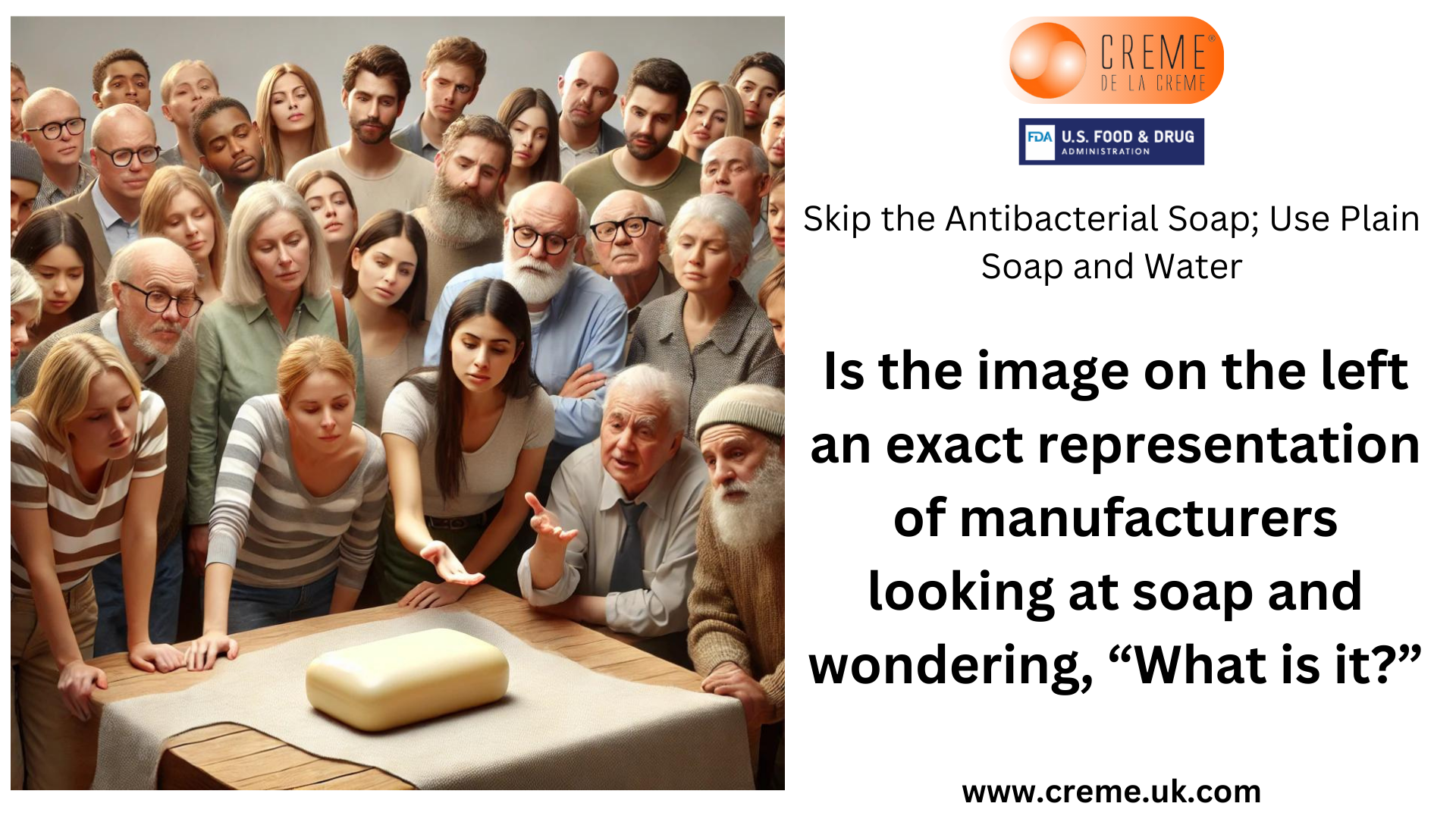In a world where innovative soap products have flooded the market, the U.S. Food and Drug Administration (FDA) is sending a clear message: when it comes to protecting your health, plain soap and water are still your best bet. The FDA recently emphasised that over-the-counter (OTC) antibacterial soaps, despite their popularity, offer no significant advantage over traditional soap and water in preventing illness. This update comes amidst growing concerns about the safety and long-term effects of certain antibacterial ingredients, prompting a closer look at what’s in the products we use daily.
The FDA’s Message: Plain Soap Over Antibacterial
Many consumers have gravitated toward antibacterial soaps for years, believing they offer extra protection against germs and illness. However, the FDA’s latest findings challenge this perception. The agency’s 2016 ruling banned common antibacterial ingredients like triclosan and triclocarban from consumer soaps, citing insufficient evidence to prove their safety or superiority over plain soap and water. Dr. Theresa M. Michele from the FDA points out, “There’s no data demonstrating that these drugs provide additional protection from diseases and infections. Using these products might give people a false sense of security.”
This doesn’t mean all antibacterial soaps are disappearing from shelves, but it does highlight the need for consumers to understand that basic soap and water can be just as effective—if not more so—without the potential risks associated with antibacterial chemicals.
Understanding Soap Regulations: What You Need to Know
The regulatory landscape for soap is complex, often blurring the lines between cosmetics and drugs depending on the product’s ingredients and claims. Here’s a quick overview:
Cosmetic or Drug?: In the U.S., soap is usually classified as a cosmetic if intended purely for cleansing. However, if a soap product claims to treat skin conditions or kill bacteria, it might be regulated as a drug, requiring more stringent approval processes.
Who Regulates What? The FDA regulates soaps classified as cosmetics or drugs, ensuring they meet safety and efficacy standards. True soaps, which don’t contain synthetic detergents or make therapeutic claims, are regulated by the Consumer Product Safety Commission (CPSC).
EU and UK Regulations: The European Union and the United Kingdom have their own regulations, which are largely aligned through the Cosmetics Regulation (EC 1223/2009). This regulation ensures that cosmetic products on the market are safe, with a particular focus on prohibiting harmful chemicals and banning animal testing.
Navigating the Market: What Manufacturers Should Consider
In light of the FDA’s update and the intricate regulatory environment, manufacturers face important decisions about how to market their soap products. Here’s what should be top of mind:
Stay Compliant: Ensuring your products meet the regulatory criteria is crucial. If your soap is marketed as a cosmetic, avoid making therapeutic claims unless you have the data and approvals to back them up.
Be Transparent: Consumers today value transparency. Clearly communicate the ingredients in your products and their benefits. This builds trust and keeps you on the right side of regulatory bodies.
Educate Your Audience: With the FDA advocating for plain soap and water, it’s essential to inform your customers about the effectiveness of your products without overstating their benefits. Education can be a powerful tool in differentiating your brand.
Innovate Safely: While innovation is key to staying competitive, it’s important to do so within the bounds of safety and compliance. Investing in research to develop new, safer products can set your brand apart in a crowded market.
How Crème de la Crème Can Support You
For manufacturers navigating these challenges, Crème de la Crème is here to help. We are a leading regulatory and quality compliance consultancy dedicated to ensuring your products shine without the burden of complex regulations dimming their appeal.
Global Representation: As EURP,UKRP, and US Agent, we provide comprehensive international representation services, ensuring your products meet regulatory requirements across markets.
PIF Preparation: Our team specialises in preparing and maintaining Product Information Files (PIF), a critical component for compliance in the EU and UK.
CPSR and GMP: We help you obtain Cosmetic Product Safety Reports (CPSR) and implement Good Manufacturing Practices (GMP), both essential for ensuring your products are safe and compliant.
At Crème de la Crème, we believe that regulatory compliance shouldn’t overshadow the brilliance of your products. Let us guide you through the regulatory maze so you can focus on what you do best—creating exceptional products that your customers will love. Contact us today to learn how we can help your business thrive in the ever-evolving world of soap and cosmetics.
For more information on how we can assist your business, visit our website and contact our team of experts. Let's work together to create a safer, more sustainable future for cosmetics.
Reach out to us by sending an email to creme@creme.uk.com or submitting a web form via https://www.creme.uk.com/contact-us

Find out if you Soap is a Cosmetic or Drug by visiting this Link